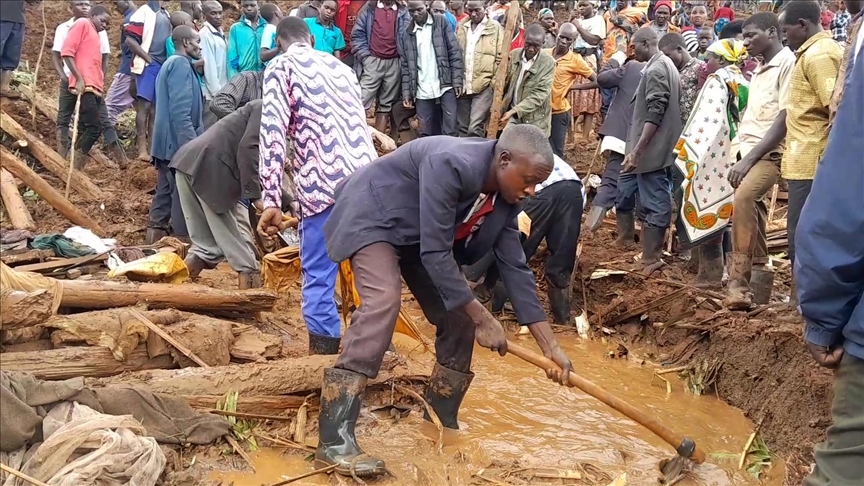The death toll from landslides triggered by torrential rains in eastern Uganda has risen to 20, with more than 100 still missing, the Red Cross said on Friday.
"The death toll has risen to 20, following the retrieval of 19 bodies and the unfortunate passing of one survivor at the hospital," the Uganda Red Cross Society said in an update on X.
The landslides have affected several villages including Masugu, Namachele, Natola, Namagugu, and Tagalu in Buluganya sub-county, Bulambuli district, some 300 kilometers (180 miles), east of the capital Kampala.
Locals are digging through the mud using hand hoes and other elementary tools in search of missing loved ones.
The relief organization said 1,540 persons and 220 houses have been affected, while 125 homes have been totally destroyed. As many as 750 people have been displaced.
Emergency responders are working to provide aid and support to those affected, according to officials.
In an earlier statement, police said rescue operations were being hindered by impassable roads, which are preventing vehicles, including ambulances and wheel loaders, from reaching the scene.
The East African nation has been hit by unusually heavy rainfall since October that has triggered widespread flooding and landslides in different parts of the country.
In a message late Thursday, Prime Minister Nabbanjah Robinah condoled with the families of the victims. She said medium and long-term solutions have been developed to prevent such disasters, and called upon local leaders and residents in disaster-prone areas across the country to collaborate with the government to avert such occurrences in the future. By Hamza Kyeyune and Serdar Dincel, Anadolu Agency






